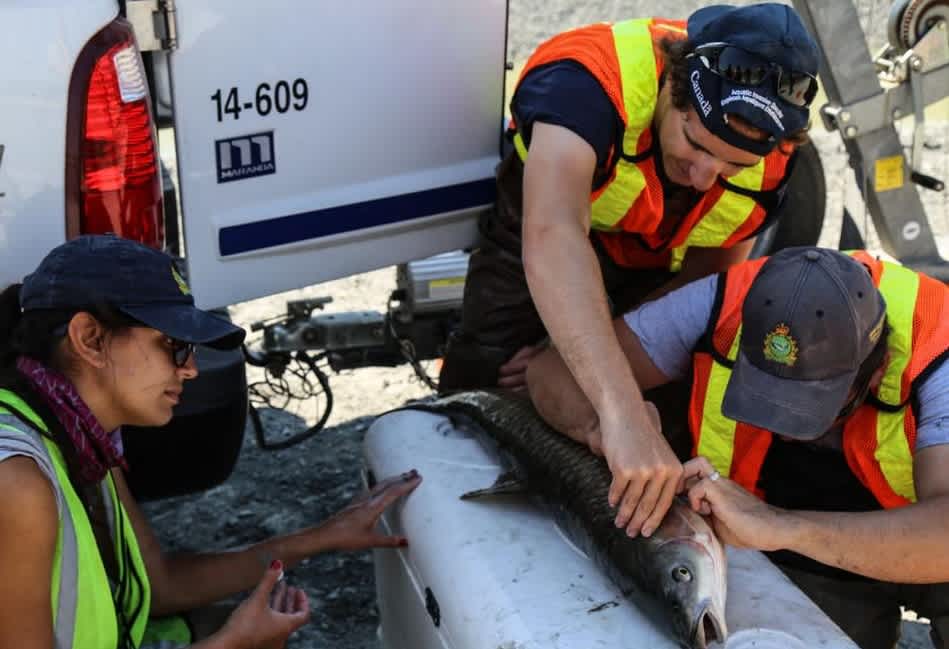Canadian Officials Mobilize to Fight Asian Carp after Toronto Discovery
OutdoorHub Reporters 08.19.15

Days after wildlife officials announced the discovery of Asian carp near Toronto, employees from Fisheries and Oceans Canada have already arrived at the scene and started electro-fishing for the invasive species.
According to the Toronto and Region Conservation Authority (TRCA), two male grass carp of breeding age were found alive and well near the Toronto waterfront. The carp were discovered as staff were relocating fish from an isolated pond as part of a construction project on nearby wetlands. Finding the carp was unexpected, but something that officials had kept an eye out for.
“In recent decades, TRCA has worked to monitor and restore fish habitats along Toronto’s waterfront and the watersheds that feed into it, restoring significant populations of native fish species that were decimated as the Toronto urban region grew,” the agency stated online. “With the expansion of wetlands, improvements to shorelines, including the installation of fish habitats along the waterfront, pike, walleye and bass populations have flourished.”
The presence of Asian carp could jeopardize all that. Grass carp is one of several carp species—termed Asian carp due to their region of origin—that have spread rapidly across North America and pose a dire ecological threat. Asian carp are highly adaptable, hard to eradicate, and often outcompete native fish. In addition, as many carp were originally brought to North America for aquacultural purposes, they can also devour lots of aquatic plant life and destabilize local ecosystems. As its name suggests, grass carp survive mainly on vegetation and can consume three times their weight daily. Large Asian carp like bighead and silver carp are an even greater concern for biologists, especially when it comes to the valuable Great Lakes.
“We’re seeing an invasion happening in the U.S., so we can see the devastation that these species are having. We’re seeing native species pushed out for food and space, we’re seeing loss of habitat in wetlands areas and we’re seeing declines in commercial fishery values,” Fisheries and Oceans biologist Becky Cudmore told WBFO.
Subsequent investigation in the area revealed no other traces of grass carp, or any signs of a breeding population.

